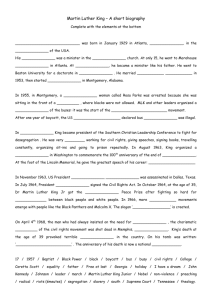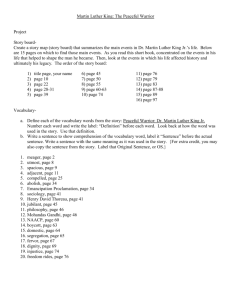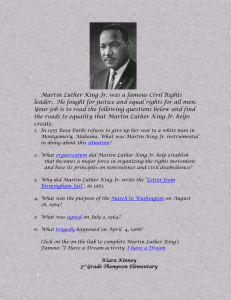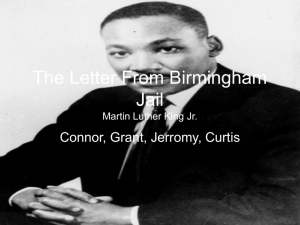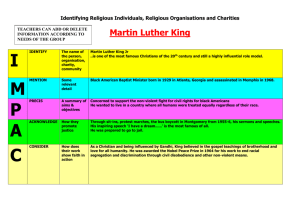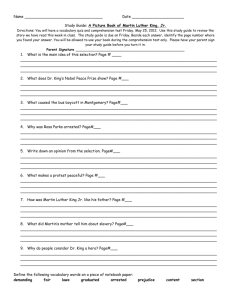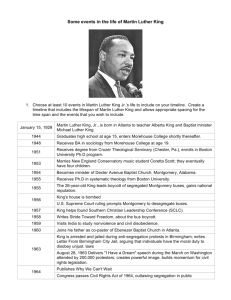I Have A Dream: The Story of Martin Luther King
advertisement
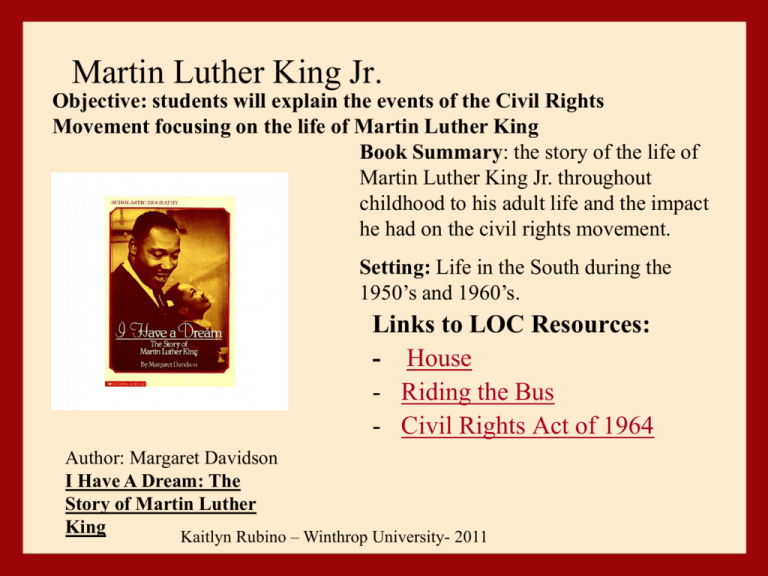
Martin Luther King Jr. Objective: students will explain the events of the Civil Rights Movement focusing on the life of Martin Luther King Book Summary: the story of the life of Martin Luther King Jr. throughout childhood to his adult life and the impact he had on the civil rights movement. Setting: Life in the South during the 1950’s and 1960’s. Links to LOC Resources: - House - Riding the Bus - Civil Rights Act of 1964 Author: Margaret Davidson I Have A Dream: The Story of Martin Luther King Kaitlyn Rubino – Winthrop University- 2011 What are you marching for? • Using the information in the book about the Civil Rights marches. Write a simulated journal. Pretend to be one of the participants in a march. Describe the feelings in the crowd, the people around you and what you are marching for. Martin Luther King participating in the Selma Montgomery Rights March in Montgomery, Alabama How does this hospital compare to hospitals we have today? • Use a Venn diagram to compare and contrast the hospitals we have now compared to the one in this picture. Include what you think the inside of this hospital looked like, the equipment used in the hospital and the importance of personal health now and then. • Hospital • Today's Hospital Hospital Why is voting important? • The class could run a campaign for president, vice president, treasurer and secretary. Each student will run for one position. They will make a campaign then the class will vote. After they vote have the students write about how they felt when they voted and how they would feel if they didn’t get to vote for who they wanted to represent them. Martin Luther King, Ralph Abernethy, and Andrew Young led a group of African Americans to vote. Standards • NCSS – – – – – I. Culture II. Time, Continuity and Change III. People, Places and Environments VI. Power, Authority and Governance X. Civic Ideals and Practices • South Carolina – 5-5.3 Explain the advancement of the civil rights movement in the United States, including key events and people: desegregation of the armed forces, Brown v. Board of Education, Martin Luther King Jr., Rosa Parks, and Malcolm X. (P, G, H) References House Hospital Voting Riding the Bus Selma Montgomery Rights March Civil Rights Act of 1964 Today's Hospital

